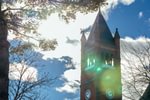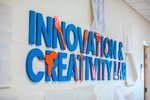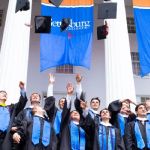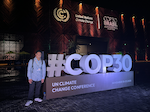
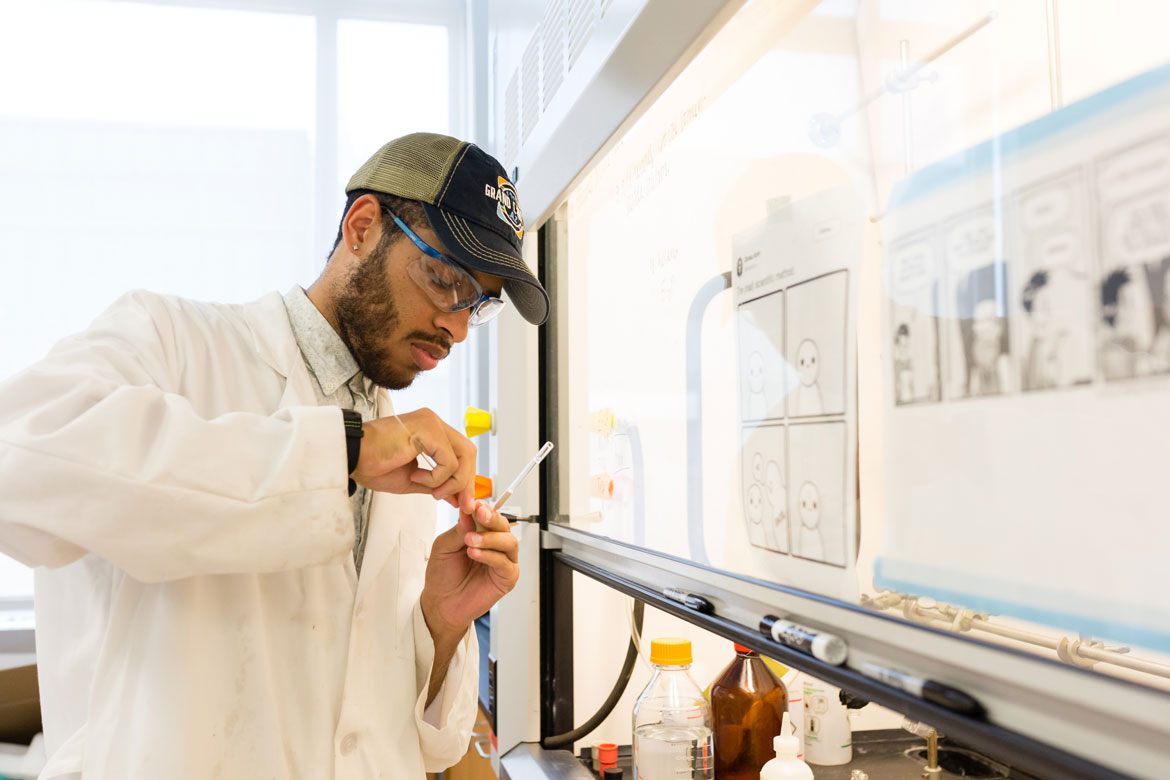
Science, technology, engineering, and math (STEM) graduates are in high demand. However, these fields of study continue to struggle to retain almost half of the students who major in them, according to the U.S. Department of Education. The challenge for students who come from underrepresented backgrounds is even greater.
At Gettysburg College, we strive to create purposeful educational pathways that are designed with the supports, mentorship, and academic experiences needed to help students succeed.
Our Gettysburg College STEM Scholars Program is uniquely designed to recruit, support, and retain STEM students who are academically promising, first-generation, and/or an underrepresented minority. The program, which was created with the help of a National Science Foundation S-STEM grant, now has 32 members from three cohorts on campus.
Read about three of these remarkable students who used the STEM Scholars Program as a springboard to realize their academic and research goals within a peer cohort of support.
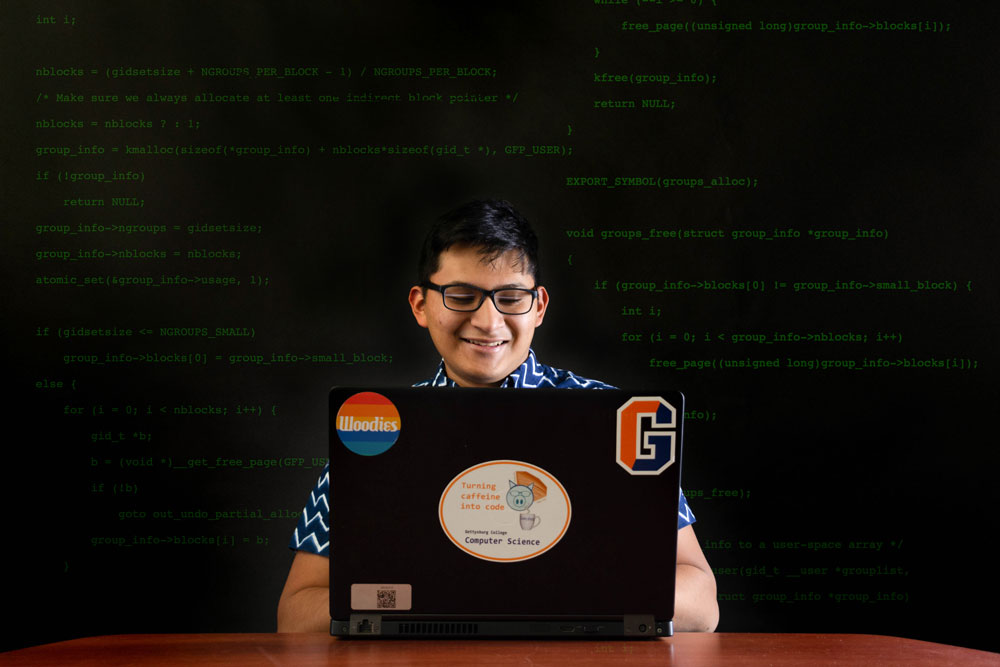
RICARDO HERNANDEZ ’21
Major: Computer science
Minor: Math
I think a lot of young people who don’t have parents who went to college lack a certain confidence. Honestly, if it weren’t for the STEM Scholars Program, I probably wouldn't have gone to a four-year college.”
Ricardo Hernandez ’21 grew up with Gettysburg College in his backyard, yet he never visited or gave it much of a thought. “I think that happens a lot when you grow up in a college town,” said Hernandez. “You kind of forget to see something great because it’s so close.”
It was only at the suggestion of a friend that Hernandez decided to give Gettysburg a real look. When he toured the campus, it felt right. “I was impressed,” he explained. “I particularly enjoyed talking to the professors. It just seemed like they really cared about me.”
Even so, Hernandez wasn’t convinced that a four-year college was for him. As a first-generation student and a self-described introvert, he didn’t feel prepared. He was scared. But Hernandez said the program provided a critical support group that helped him navigate new experiences and challenges, as well as a peer cohort with similar interests and backgrounds.
Now a sophomore and computer science major, you can find Hernandez leading his own Gettysburg campus tours without a trace of shyness. In fact, he’s adamant about finding a career in computer science that allows him to regularly interact with people. “I’m definitely more confident,” he said with a laugh.
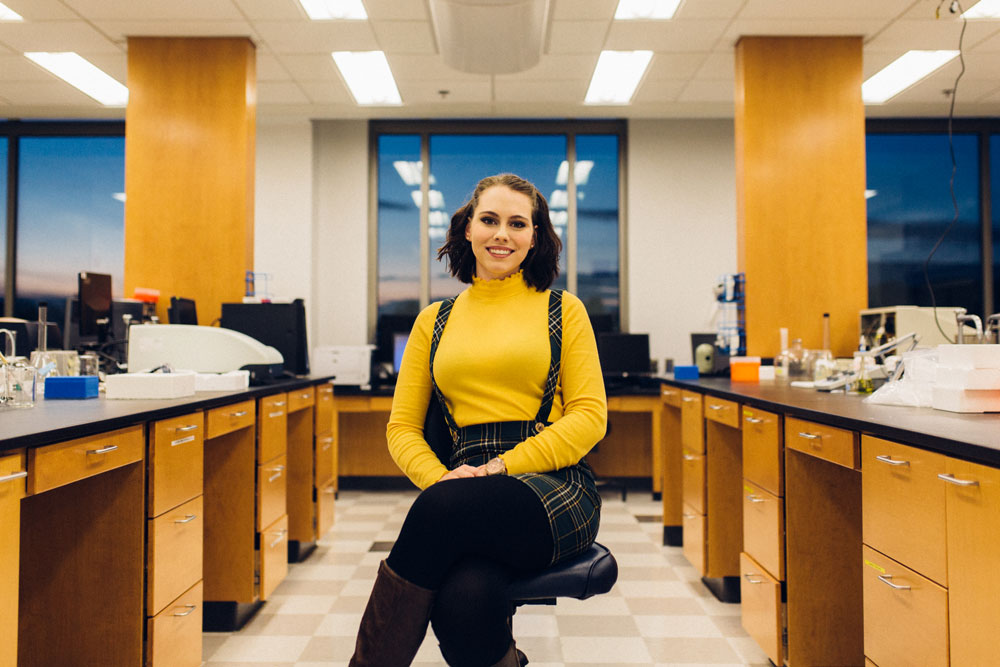
SHELBY NICOLAU ’20
Major: Chemistry
The STEM Scholars Program gave me the support group I needed to succeed as a first-generation student. I’ve not only had direct interactions with several faculty members on campus, but I’ve also gained a group of lifelong friends within my cohort.”
When Shelby Nicolau ’20 was considering which college to attend, the STEM Scholars Program at Gettysburg College was a deciding factor. The program’s support and financial assistance gave Nicolau the confidence she needed to matriculate as a first-generation college student at an institution with a strong academic reputation. “The program is a tremendous resource that gives first-generation and minority students an equal opportunity to succeed in college,” she said.
At Gettysburg, Nicolau was exposed to hands-on STEM research early through a freshman course called Phage Hunters, in which students become research scientists hunting phage (a virus that infects and replicates within bacteria and archaea). She also later became a member of the nanolab that explores the surface chemistry of gold nanoparticles.
Now a junior, Nicolau has taken part in multiple research opportunities and internships, strengthening her love for STEM. During her first summer at Gettysburg College, Nicolau completed an internship with Penn State’s Fruit Research and Extension Center, where she was able to continue working on phage therapy. After that summer, she shifted her focus to chemistry and continues to work in the nanolab with her advisor Chemistry Prof. Lucas Thompson, whom she credits with keeping her solidly connected to the college and her major. She is currently working on research in materials chemistry.
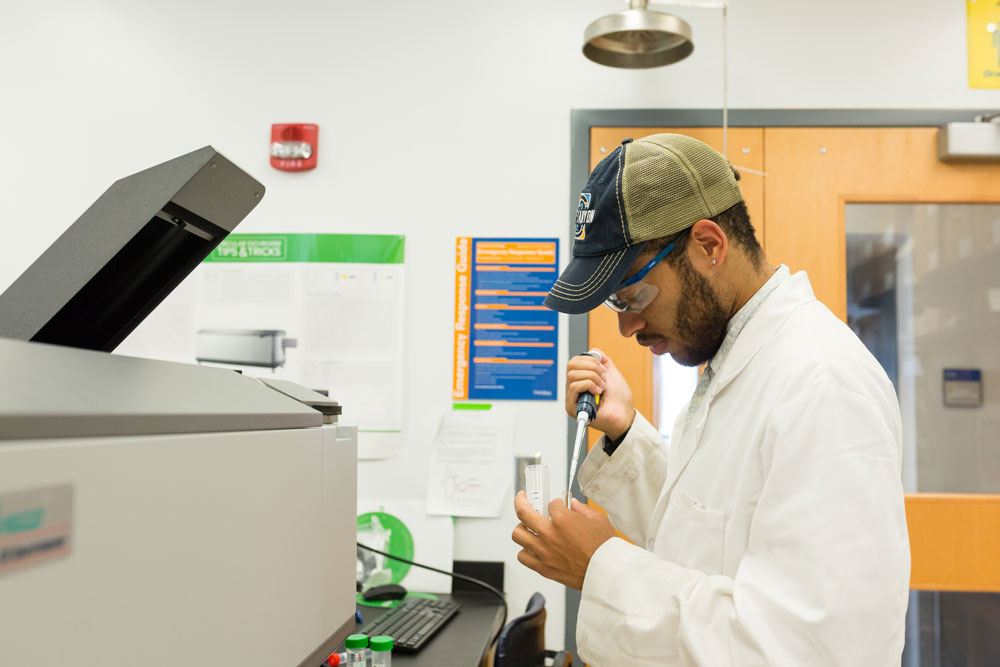
ALEXANDER PAREDES ’20
Major: Biochemistry and molecular biology
The STEM Scholars Program ensures that students know they can succeed in majors that are famous for being notoriously difficult.”
While other colleges treated Alexander Paredes ’20 like a number, Gettysburg College made him feel seen—and wanted—from the moment he arrived on campus. Finding the right place was exciting, but that enthusiasm was tempered by the price tag.
“For the longest time, college wasn't really a thought for me. It was never anywhere near affordable,” said Paredes.
An invitation to the STEM Scholars Program changed that. “Through the STEM Scholars Program and its financial support, college became a real opportunity for me,” he explained.
Once Paredes was officially a student, he found encouragement and comraderies in his STEM Scholars cohort. They, and his own successes in the classroom, reinforced again and again that he could flourish academically and within the sciences.
“The STEM Scholars Program creates an environment that supports collaborative success,” said Paredes when reflecting on the power of the cohort. “I’ve often faced times when I felt unable to grasp a certain topic in a class, but I was able to reach out to another member in my cohort and receive help—and I was able to do the same for them.”
Now in his junior year, Paredes’s research resume is impressive. For a semester, he worked with Biology Prof. Véronique Delesalle on genomic annotations, which is the process of identifying the locations of genes and the coding regions in a genome and determining what those genes do. Additionally, since his freshman year, Paredes has been conducting bioinorganic research with his adviser, Chemistry Prof. Katherine Buettner. With Buettner, Paredes has been investigating ways to prevent metals from becoming unstable when they interact with water.
Paredes plans to become a doctor. He encourages others with big dreams in the sciences to explore the STEM Scholars Program.
“The program ensures that students know they can succeed in majors that are famous for being notoriously difficult. It teaches you that there are no boundaries,” he said.
